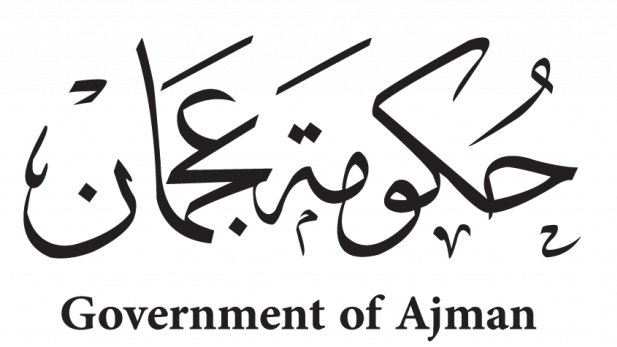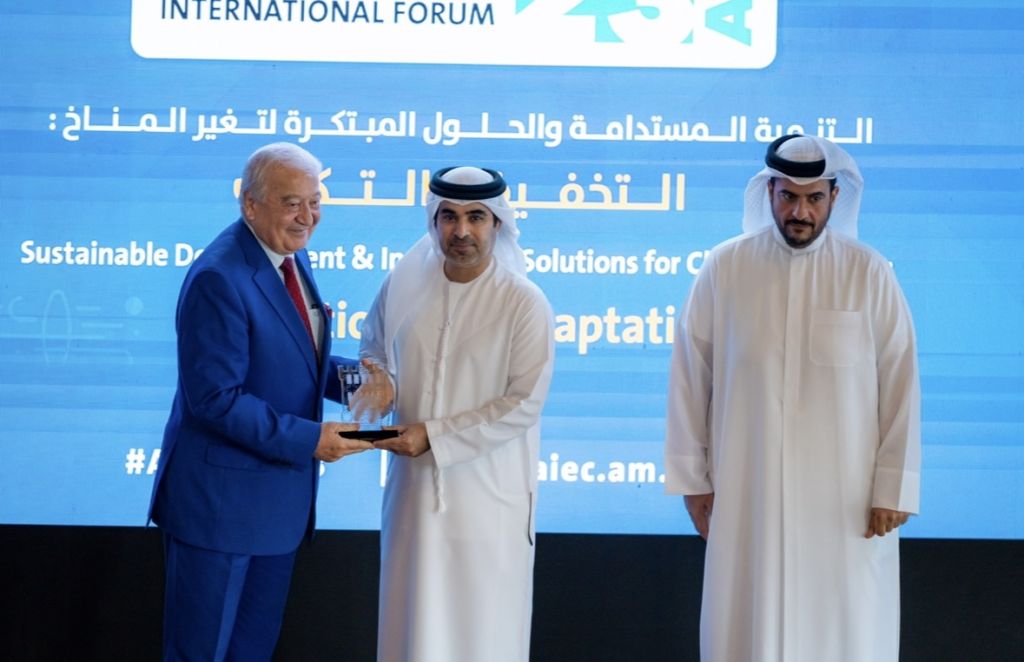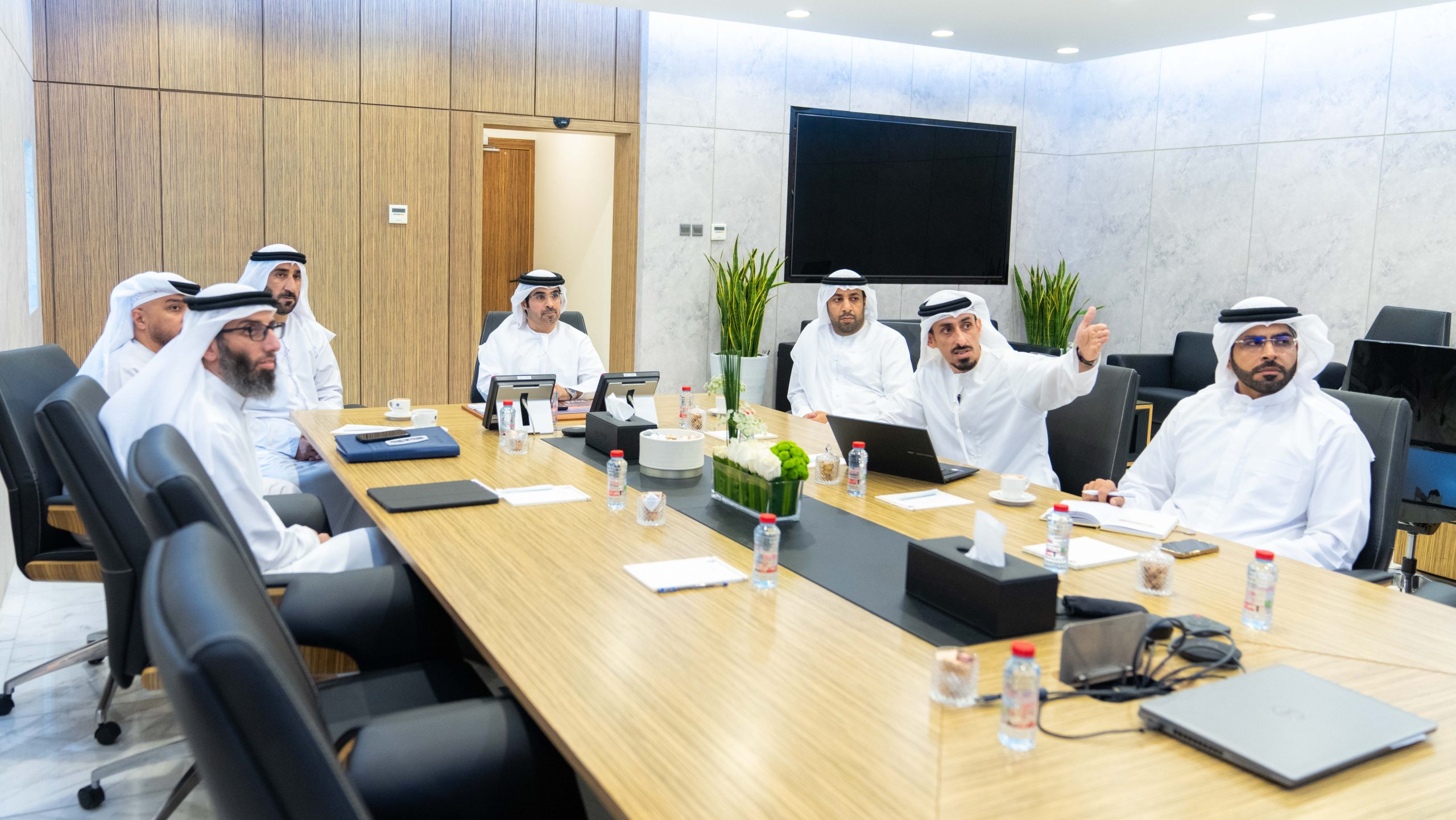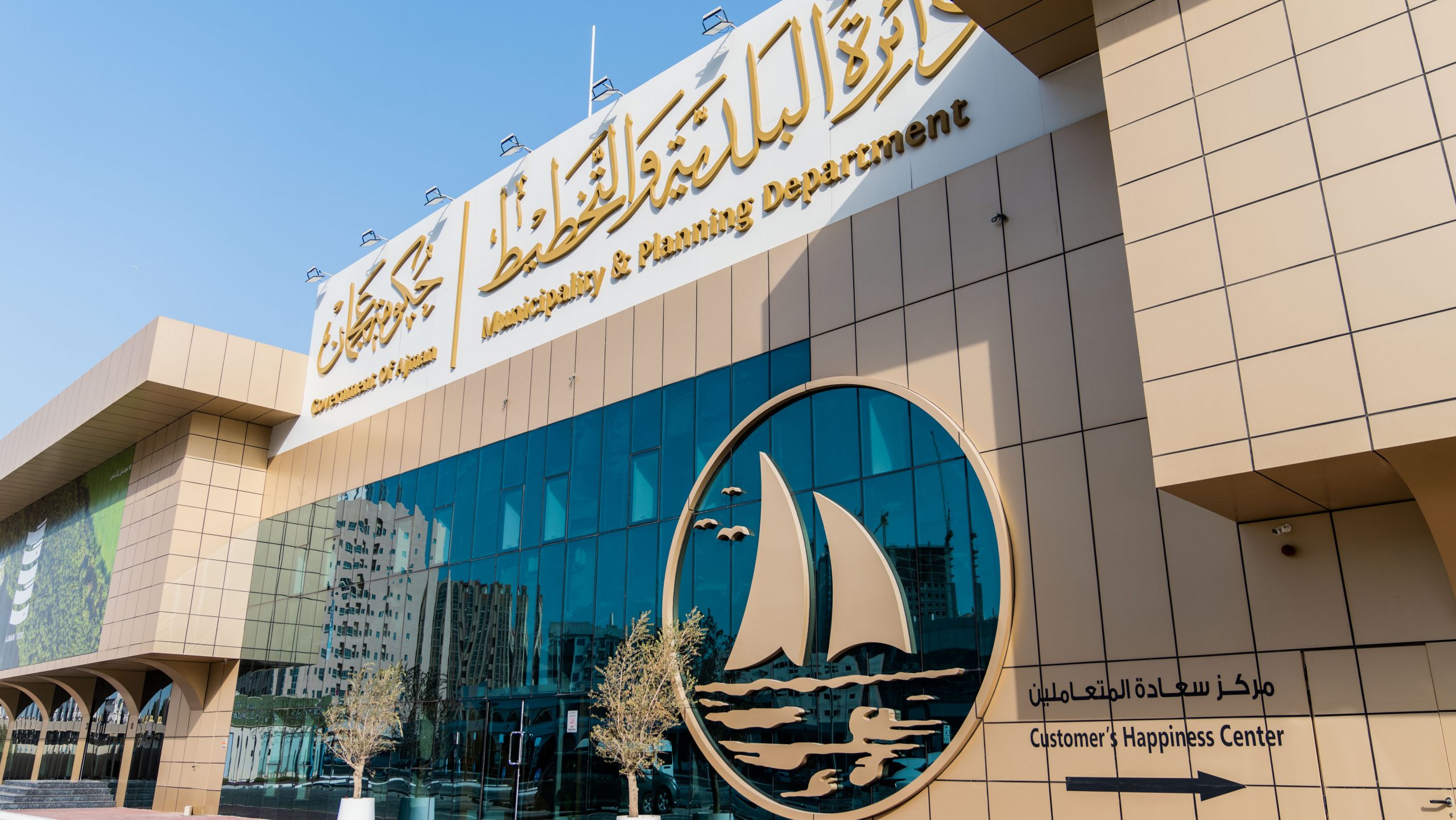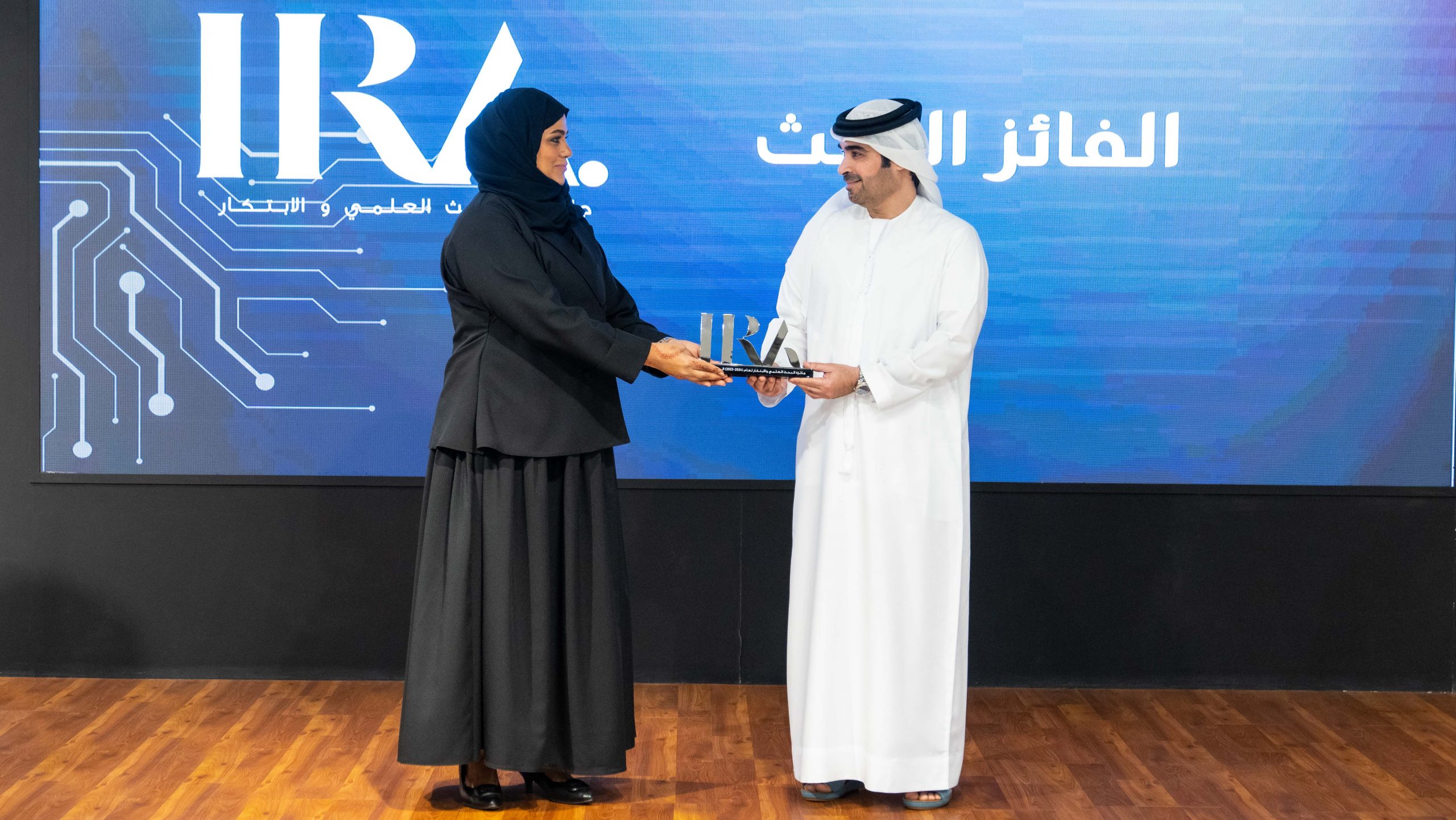The Municipality and Planning Department – Ajman (MPDA) organized the Ajman International Forum for Sustainable Development, dubbed “Sustainable Development and Innovative Solutions to Climate Change: Mitigation and Adaptation,” held under the patronage of His Highness Sheikh Rashid bin Humaid Al Nuaimi, Chairman of the MPDA, and eyed the presence of His Excellency Abdul Rahman Mohammed Al Nuaimi, Director General of the MPDA, and local and international experts, specialists, and challengers in the field of sustainability and confronting climate change.
In this vein, His Excellency Abdul Rahman Al Nuaimi asserted that the MPDA decided to organize the Forum to coincide with the COP 28 Conference, voicing his pride in the assembly of the brilliant minds and those with bright experiences to share positive experiences and review qualitative experiences to ensure overall and integrated sustainability.
His Excellency noted that the MPDA has been able, over the past years, to carry out several qualitative and awareness-raising projects and initiatives to consolidate the values of environment and climate protection, and continues its around-the-clock endeavor to provide the best and move strongly towards a sustainable future, so that the community and visitors can enjoy an ideal environment. “Our goal is to support innovations and develop ideal solutions,” His Excellency added.
The Forum included two dialogue sessions in which leading experts and specialists took part. Professor Myles Allen spoke about enhancing global sustainability and the Paris Agreement to achieve zero carbon, harnessing economic potential, and accelerating climate action. Professor Salam Darwish shed light on harnessing offshore floating wind technology, mitigating climate impacts, adaptation, and sustainable energy transition strategies. Mr. Alexander Woodville also answered a question about how to move from pollution to positive environmental impact.
Moderated by Professor Riyad Al-Dabbagh, the second session included Professor Ahmed Hashisha, who spoke about enabling sustainable energy solutions, and the role of hybrid photovoltaic thermal complexes in combating climate change, and Dr. Basem Nasohi, reviewed the experience of progress in global sustainability and the Paris Agreement.
Forum Recommendations
The Forum wrapped up its activities with Engineer Humaid Al-Mualla, Director of the Environment and Development Department, reviewing the key recommendations based on the presentations, explaining that all bodies, departments and institutions are eager to enhance sustainable development and adopt innovative solutions to mitigate the effects of climate change and adapt to it.
Eng. Al-Mualla highlighted the most important recommendations; commitment to net zero emissions by aligning policies and initiatives with the Paris Agreement’s goals, focusing on achieving net zero emissions through implementing strict regulations, stimulating sustainable practices for industries, benefiting from renewable energy technologies, investing in research and development, disseminating hybrid renewable energy technologies, and transitioning from pollution to environmental renewal by encouraging a paradigm shift from pollution to positive environmental impact that focuses on adopting circular economy principles, waste reduction strategies, sustainable production and consumption practices, and integrating environmental health into climate adaptation.
Experts unanimously agreed on the need to reinforce multi-sector cooperation by encouraging cooperation between governments, industries, academia and civil society to exchange experiences, resources and innovation to achieve sustainable development goals and strengthen partnerships to drive collective action and exchange knowledge, stimulate investment in research and innovation, and enhance public awareness and education to provide communities and individuals with knowledge related to the impacts of climate change and its solutions, enhance education programs to inspire sustainable behaviors and active participation in climate action, and enhance policy frameworks supporting the adoption of renewable energy, circular economy models, and climate-resilient infrastructure while ensuring accountability and enforcement mechanisms, measuring impact and adaptability, along with following up on the recommendations to be reached during the COP28 Conference held in the United Arab Emirates of 2023 to enhance the recommendations reached.
It is worth mentioning that the Forum’s recommendations underscore the pivotal role of capitalizing on renewable energy technologies, cooperation, innovation, policy support, and group participation across different sectors in addressing the complex issues of climate change and achieving sustainable development goals.
